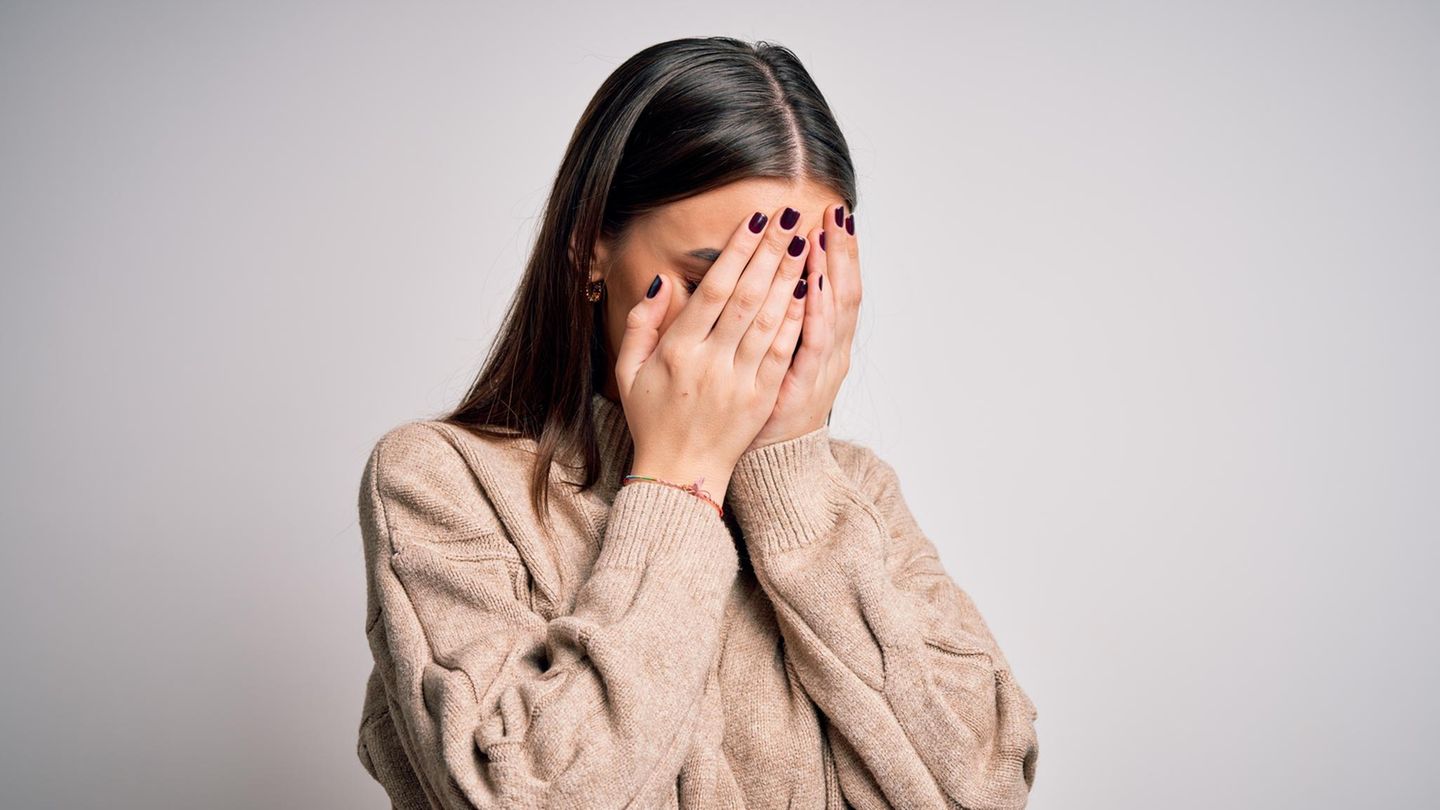If it itches in the intimate area, then a doctor’s visit is due. However, out of shame, some people choose not to have their symptoms examined. Shame about illness is often not necessary.
Chlamydia, irritable bowel syndrome or a nasty fungal infection – these are all diseases we hate to talk about. These are diseases that come with symptoms that sometimes make us blush with shame.
And there are not so few of them, as a current representative survey commissioned by the online medical practice Zava shows. The results result in a ranking of the most shameful complaints of Germans, which looks like this:
Place 10: STDs
9th place: Diarrhea
8th place: incontinence
7th place: Dandruff, greasy hair
Rank 6: Fungal infection in the intimate area
5th place: lice
4th place: gas
Place 3: Excessive sweating
Place 2: Bad teeth
1st place: Bad breath, armpit odor
But where does the shame of illness come from? Beyerley Kugler, medical director of the online practice in Germany, said when presenting the results: “Many people find illnesses that are supposedly self-inflicted particularly embarrassing. So behind the feeling of shame there is often the fear of being judged by others.”
The psychologist Annette Kämmer explains the whole thing in an interview with “Emotion”: “Shame usually arises around the age of eight and occurs in the development of every child. No matter how liberal a child was brought up, it suddenly develops this feeling that some would rather hide things, maybe not reveal the body to the public.” So, to some extent, shame is in our blood.
Negative consequences of shame – there is no visit to the doctor
The survey by the online practice Zava shows that shame about illness can also have negative consequences. Accordingly, many of those affected avoid visiting a doctor out of embarrassment. More precisely, 44 percent of women and 36 percent of men remain silent when they have an STD, bad breath or intestinal problems.
A total of 35 percent of those surveyed have already felt shame in relation to an illness. However, the fear of being judged for corresponding symptoms is rarely justified. Only 27 percent of the participants state that they have already received negative feedback from others because of their complaints.
How the feeling arises
But what to do if shame nevertheless takes over and restricts your own life? “To find out that I didn’t bring myself to blame for my illness is a key first step. This can encourage you to take a closer look at your own condition,” says Waltraut Barnowski-Geiser in an interview with “Psychologie Today”. She is a non-medical practitioner for psychotherapy and music therapist and has written a book about shame of illness.
Shame isn’t unique to illnesses, it affects all of us at times. But there is a need for action, especially when the feeling of shame causes us to avoid going to the doctor. Because many shame-related illnesses do not go away on their own and require medical treatment.
How to overcome shame
Dealing with the shame of illness differs only slightly from dealing with general feelings of shame. A simple rule of three applies here as well: acceptance, analysis and activity. That means accepting that the shame is there. But always keep in mind that shame is just a completely normal feeling that everyone experiences – no more and no less.
Analyzing where the feeling of shame comes from and what experiences or attitudes are associated with it – because shame is often based on a “”not-good-enough feeling”. And finally, overcome the shame by addressing the root causes and doing a reality check. For example, questions like: What is the worst that can happen? What am I really afraid of? Would I judge others for the same disease?
With all the resistance against the unpleasant feeling of shame, one must not forget that shame also has its good sides. It serves to protect our intimacy and protects our borders and thus ourselves from external injury.
A life without shame would therefore not be a healthy one either. Nevertheless, especially with regard to any illnesses, shame should not guide our actions. Beverly Kugler advises those affected one thing above all: “Regardless of whether it’s armpit sweating or acne, periodontal disease or fungal infections, don’t be afraid to seek medical advice. It’s important that you have your symptoms clarified by an expert.”
source: , ,
Source: Stern




